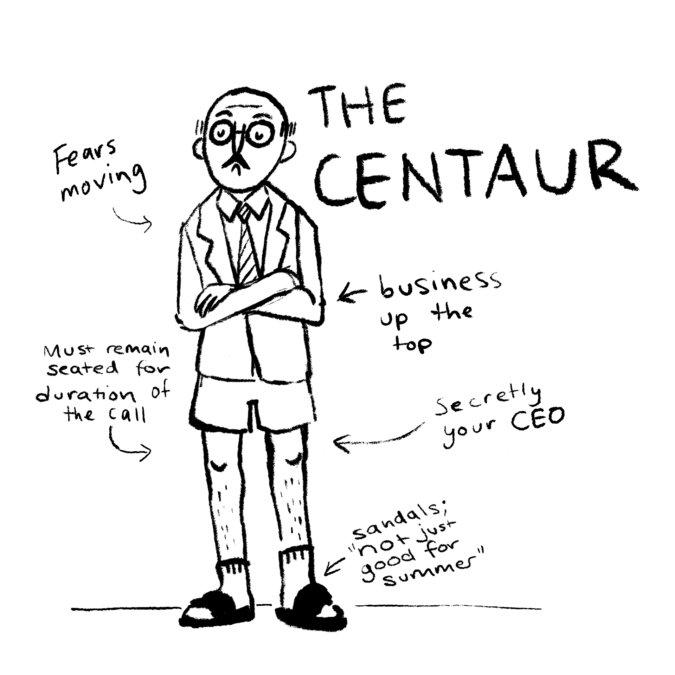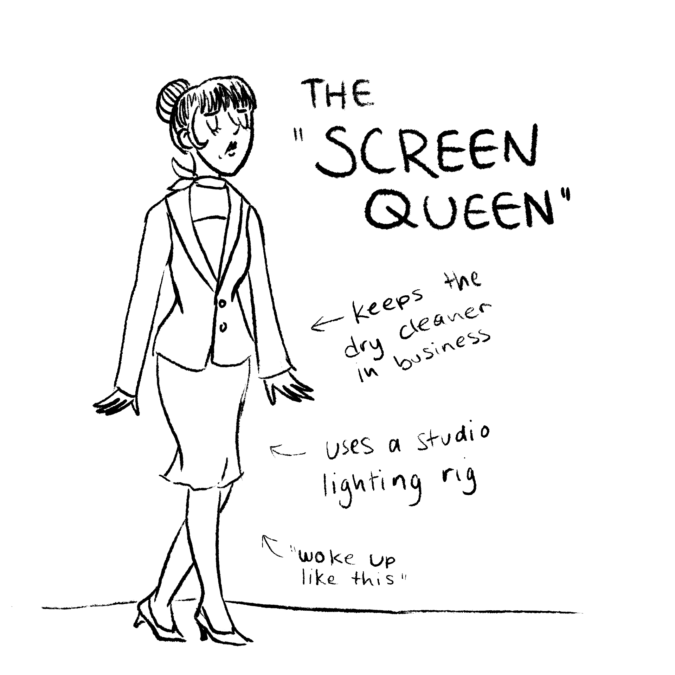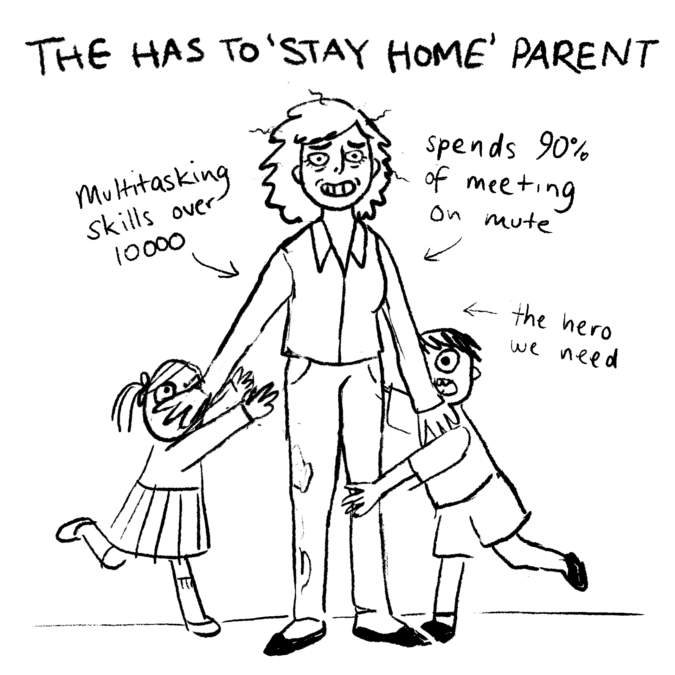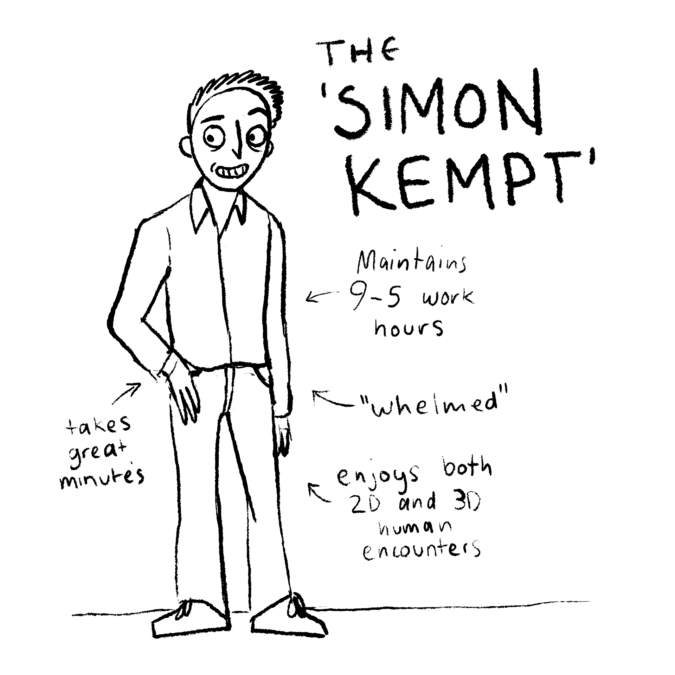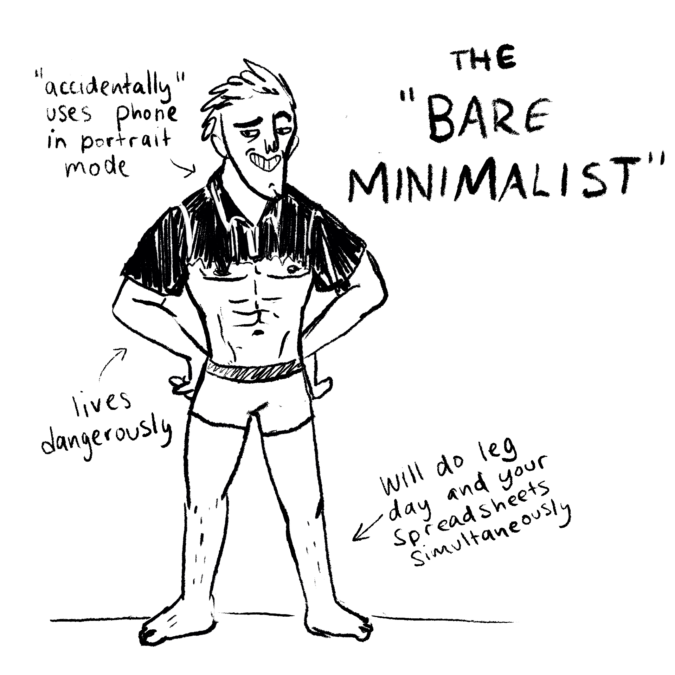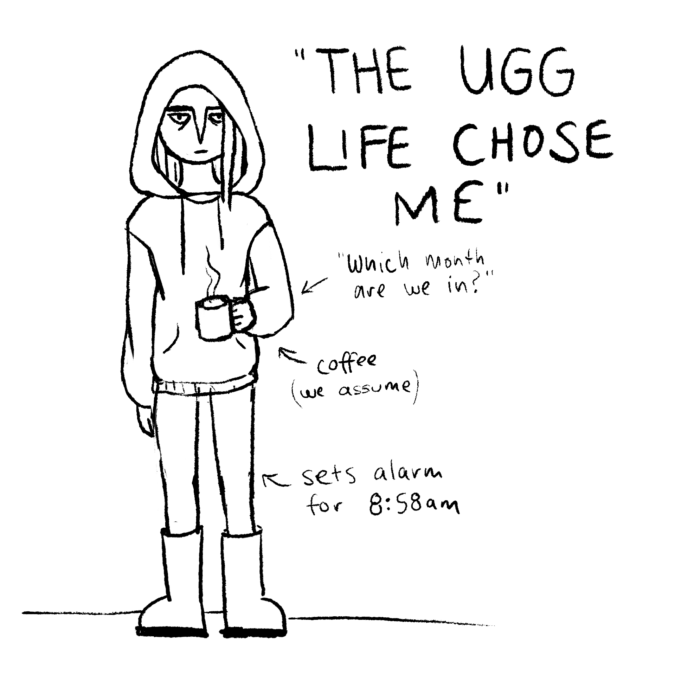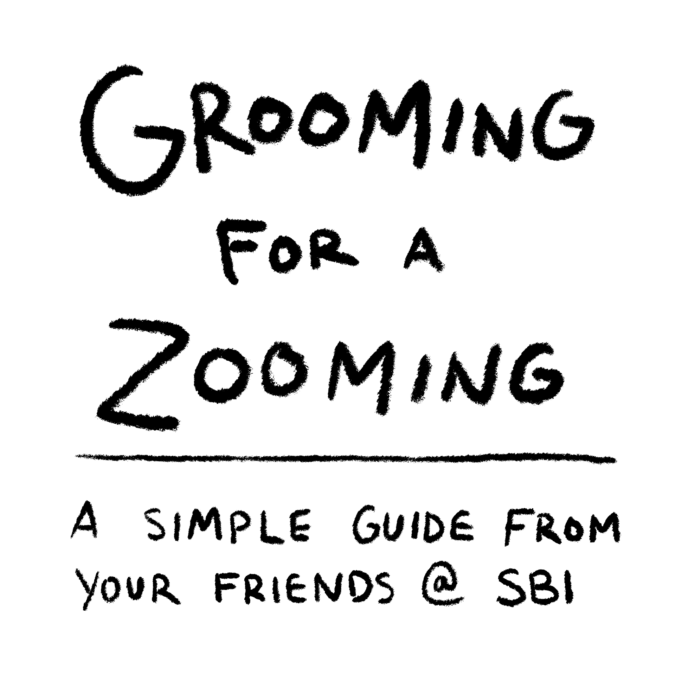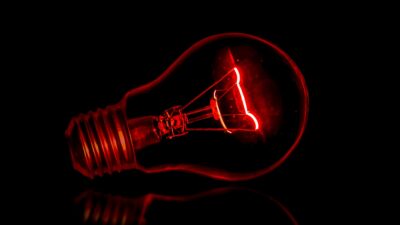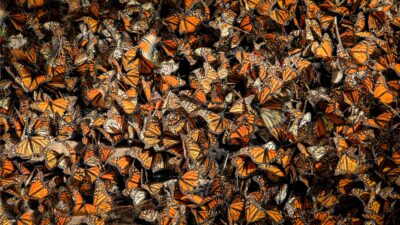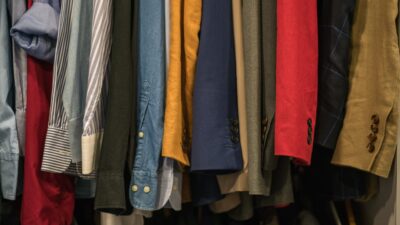Sandra Peter and Kai Riemer
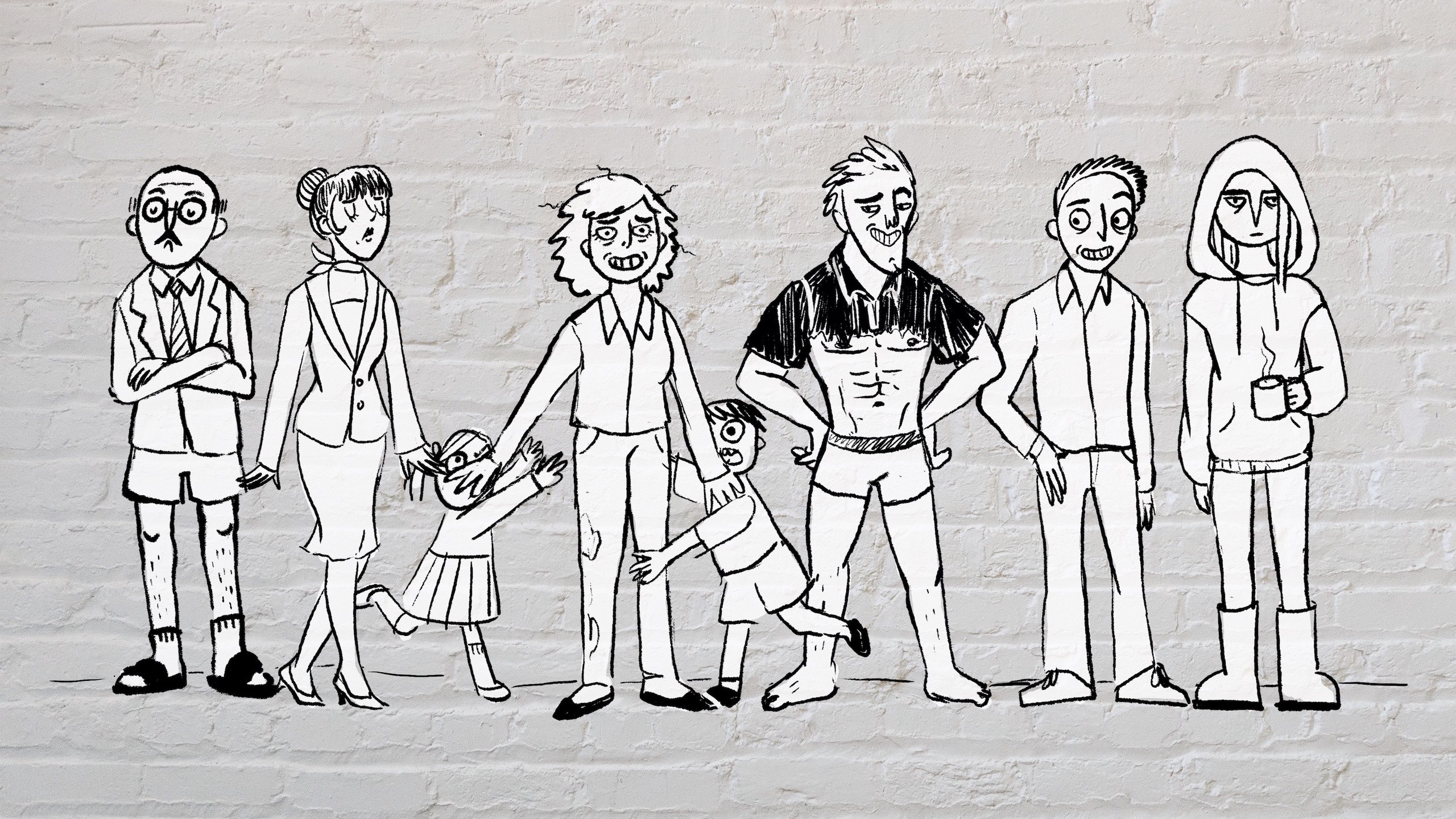
Humour on Corona Business Insights
We discuss the role of humour as a coping mechanism and as a way to bond with others in difficult times during the COVID-19 pandemic.
As COVID-19 sets out to change the world forever, join Sandra Peter and Kai Riemer as they think about what’s to come in the future of business.
Shownotes
Maria and the Von Trapplings sing the sound of COVID-19
Bohemian Rhapsody corona parody
Humour in the times of corona around the world
Chinese citizens create new ways to connect with each other safely
Humor helps us take back control and connect
Barbara Fredrickson on the role of positive emotions in positive psychology
#LifeCommentary #LiveCommentary with Nick Heath
Our previous conversation about sports on Corona Business Insights
Our previous conversation about satire and science communication on The Future, This Week
Sharing corona memes, for the advancement of science with the University of Amsterdam and KU Leuven
This episode is part of a podcast series covering what COVID-19 will mean for the business world, where we look at the impact on the economy, businesses, industries, workers and society. This is part of our ongoing coverage of the impact of COVID-19 on the future of business.
Follow the show on Apple Podcasts, Spotify, Overcast, Google Podcasts, Pocket Casts or wherever you get your podcasts. You can follow Sydney Business Insights on Flipboard, LinkedIn, Twitter and WeChat to keep updated with our latest insights.
Send us your news ideas to sbi@sydney.edu.au.
Dr Sandra Peter is the Director of Sydney Executive Plus at the University of Sydney Business School. Her research and practice focuses on engaging with the future in productive ways, and the impact of emerging technologies on business and society.
Kai Riemer is Professor of Information Technology and Organisation, and Director of Sydney Executive Plus at the University of Sydney Business School. Kai's research interest is in Disruptive Technologies, Enterprise Social Media, Virtual Work, Collaborative Technologies and the Philosophy of Technology.
Share
We believe in open and honest access to knowledge. We use a Creative Commons Attribution NoDerivatives licence for our articles and podcasts, so you can republish them for free, online or in print.
Transcript
This transcript is the product of an artificial intelligence - human collaboration. Any mistakes are the human's fault. (Just saying. Accurately yours, AI)
Intro From the University of Sydney Business School, this is Sydney Business Insights.
Sandra And this is Corona Business Insights. I'm Sandra Peter.
Kai And I'm Kai Riemer.
Sandra And with everything that's happening out there, it's quite hard to understand what COVID-19, will mean for the business world. So in the series we've been unpacking business, economy, industry, government workers and society, and looking at the effects of the pandemic.
Kai In this podcast is, of course, part of a larger initiative by the University of Sydney Business School. Our COVID Business Impact dashboard is a living initiative which we constantly update with insights and resources from academics, from industry experts, Nobel Prize Winners, movers and shakers.
Sandra And you can find all of these resources online at sbi.sydney.edu.au/coronavirus.
Kai And today we talk about the role of humour in the COVID-19 pandemic.
Sandra During the last few months, we've seen humour being used as a coping mechanism to what has been an extremely difficult situation for all of us, as a means of defence, as a means of fighting back against the consequences of the pandemic. And often we've seen humour just as a diversion, as something to take our minds off the pandemic.
Kai And we've seen humour as a way to regain some sense of agency in these times where many of us feel powerless and at the mercy of decisions being made for us during a lockdown, for example, or indeed as a way to connect with others by passing on memes and funny things, the volume of which far outstrips anything any of us have shared before this pandemic.
Sandra We've all received memes and jokes from many of our friends and family, and most of us have often quite immediately forwarded those memes and jokes to everybody else we knew. And in doing so, try to establish some sense of a shared experience around life in lockdown.
Kai Because many of us live either too close to or too far away from our parents these days, or some of us have too much time on their hands, like Nick Heath, the UK sports commentator, who shared his clips on our sports episode. His commenting on real life, cats lazing around, people crossing the road, snails trying to move ahead an inch.
Kai Or there have been these fabulous clips where musicians play their instruments and these Zoom pictures are put together, I'm sure everyone has seen them and some of them are really funny, like the Bohemian Rhapsody one.
Audio - Bohemian Rhapsody I'm just a poor boy facing mortality, he's just a poor boy facing mortality. Spare him this life from this monstrosity. Touch your face. Wash your hands. Will you wash your hands? we will not wash our hands. Wash your hands. Mama mia wash your hands? COVID-19 has a sickness put aside for me, for me, for me.
Sandra Ah, the Sound of Music, isn't that great?
Audio - Sound of Music Do not fear, but please stay here, stay at home now everyone. We must wash and clean things well, cars, no long trips just for fun. Don't let COVID virus spread, isolate yourself at home, see your friends online instead, that's the healthy way to go.
Kai Well, many have pointed out how important music is during these times, like this music teacher.
Audio - Music teacher Hey, so some of you guys right now, I'm a music teacher and I found that one of the best ways that I can process the whole transition to online learning and teaching is to write a song. So I wrote a song. I'd like to share that with you guys. Now, here we go. MUSIC AND SCREAM
Sandra So I guess this is the sound of isolation, many of us have felt like this, and humour for many people has been a coping mechanism. There are, of course, accounts of humour in times of war. There are many accounts around the role of humour during and after the Holocaust.
Kai And we're going to put a link in the shownotes to an excellent documentary called The Last Laugh, in which the authors trace the way in which people, even in the darkest times, used humour as a defence mechanism to cope with what is hopeless situations or as a way to ridicule those who are in power or oppress them. And so if humour is used at the darkest of times, there's no wonder that people have resorted to humour to cope with what is now an unprecedented situation that is confusing that many of us don't understand. So humour often is used not to just make light of the situation, but also to engage in a form of collective sense of getting a handle on what is actually going on.
Sandra And of course, all of us are using this together as a way of making sense of the situation that we're all in. Getting a sense of we're all in this together, trying to understand what is happening to us. Remember the one about anyone else starting to get a tan from the light in your refrigerator?
Kai Or jokes about pointing out the absurdity of the situation that many of us find ourselves in, memes and jokes about hoarders buying an enormous amount of toilet paper. What the implications of that are, you know, our children in 25 years using up the last roll of toilet paper that their parents bought. And be reminded, we're talking here about a generation of children who were home-schooled by day-drinkers.
Sandra This one might land you in trouble.
Kai I know, because it's true, isn't it?
Sandra Megan, our sound editor, is raising her bottle.
Kai Yeah, and we've pointed out in a previous episode that there are actually restaurants selling cocktail at-home kits. So there's an industry now catering to this phenomenon.
Sandra But seriously, ads like 'single man with toilet rolls would like to meet single woman with hand sanitiser for good, clean fun'.
Kai Well, you brought enormous amounts of hand sanitiser made from gin, didn't you?
Sandra I did, I was an accidental hoarder. I thought they were 20 ml bottles. Turned out they were one litre bottles.
Kai Yeah, that happened to me when I accidentally bought 48 rolls of toilet paper.
Sandra How did you accidently, did they fall in your trolley? I feel we're using this as a coping mechanism now, but we are feeling better for it. And that's actually one of the scientific premises, which is that humour actually does advance well-being and health, and there's research we'll include in the shownotes by people like Barbara Frederickson, who've written a lot about humour being a precursor to being more positive. And that, in turn has not just things like positive emotion, but also things like learning and creativity.
Kai And it's for this reason that humour has been called the cheapest antidepressant for kids with an Internet connection during this pandemic.
Sandra Yeah, humour is the best medicine. And it releases dopamine, a neurotransmitter that signals a reward and pleasure as it can improve blood flow, can improve immune response and even pain tolerance.
Kai Which should come in handy if you are, you know, accidentally stepping on one of those Legos that you've been putting together during all your spare time. Or isn't it, Sandra?
Sandra Yeah, I think that's still considered one of the most painful experiences happened before on the Lego. But seriously, again, humour is also been used around the world to convey quite serious messages, sometimes in simple prevention ads like the one out of Texas that said "wash your hands like you just done slicing jalapenos for a batch of nachos, and you need to take your contacts out". Or Vietnam's Ministry of Health, with catchy coronavirus prevention songs, or Washington's Secretary of State on sealing the ballots for a postal vote: "whether healthy or sick, please don't lick". Or Singapore's 'air hug', or China's Wuhan handshake,
Kai Which are humorous initiatives to find replacements for the handshake, of course.
Sandra And indeed, the Wuhan shake, tapping each other's toes with shoes on has actually caught on around the world,.
Kai Has become a much played TikTok meme.
Sandra And of course, as a result of these moves, we've all learnt to wash our hands much better.
Audio - Bohemian Rhapsody Mama mia, Mama mia, Mama mia wash your hands.
Kai But humour is also used in quite productive ways to package what is serious, sometimes complicated problems and sell it to wider audiences. And I'm thinking here, of course, of Late Night Show’s with Steven Colbert, or another one of our favourites, John Oliver, last week.
Sandra Tonight, of course, is a satire television programme that does a lot of serious investigative journalism, receiving not only Emmy Awards for entertainment, but also Peabody awards.
Kai To honour the most powerful, enlightening and invigorating stories in television.
Sandra And John Oliver, of course, tackles very serious topics, including topics related to the pandemic. And some of his segments are followed by real world change and actions on the public issues that it raises with policymakers and the institutions implementing change to address some of the things discussed on the show.
Kai And in recent episodes, he has tackled things like the shortage of testing in the US. The way in which essential workers cope is they are sometimes very difficult situation or indeed the role of misinformation during the pandemic.
Sandra And we want to recognise that increasingly humour and satire are acknowledged as an effective genre to communicate science as well. And we've discussed this previously on The Future, This Week. We will include that link in the show notes how the scientific community has been experimenting with different humour and satire, onerous to get their message across with disgust. There are a paper published in Trends in Ecology and Evolution that started with "should planet Earth stick with its hard-line ideological stance. We will seek a second planet. We do not care about planet Earth", the scientists declared. "If humans are exhausting the planet's resources, it's Earth that needs to adapt, not us".
Kai And we do know that there's research in the field of communication studies that has shown that humour can be used to effectively communicate scientific messaging much better than the normally used dry and factual accounts that scientists are so used to writing. So much like John Oliver is able to communicate really complex public policy issues using humour. Scientists are now frequently resorting to satire and humour to propagate their messaging.
Sandra It is more memorable. We can recall it better, it's also more shareable. We want to tell our friends and family about and of course, this also points to the fact that humour has a role to play not only during the pandemic, but will continue to play an important role as we come out of the pandemic.
Kai And there is, of course, research underway. This one at the University of Amsterdam, where researchers are creating an archive of all the kind of memes and humorous bits that we have created and shared during this pandemic.
Sandra So if you have them, send them in.
Kai And this is where you want to leave you today. As always, we will include the materials in the show notes and many of the materials we have mentioned. You will, of course, already find in your own social media streams.
Sandra Until next time. This has been Corona Business Insights.
Kai Thanks for listening.
Sandra Thanks for listening. And we'll leave you with Nick Heath.
Audio - Nick Heath Well you join me live, as we focus on this, the last heat in the fifteen hundred millimetres. And well heat really is going to be the factor here, this is Frenchman Les Cargo just listing from side to side here momentarily. His trail showing the amazing distance he's covered in the last seven months. Now, Les is known for his up and over technique, and we've not seen too much of it in this year's previous heats. But look at him go, back against the shell, the firm up, and now we'll see the droop. Oh, there it is. Just like if your mum's walked in. He's got a way to go in this one. Might read War and Peace in the meantime,.
Outro From the University of Sydney Business School, this is Sydney Business Insights. The podcast that explores the future of business.
Close transcript
